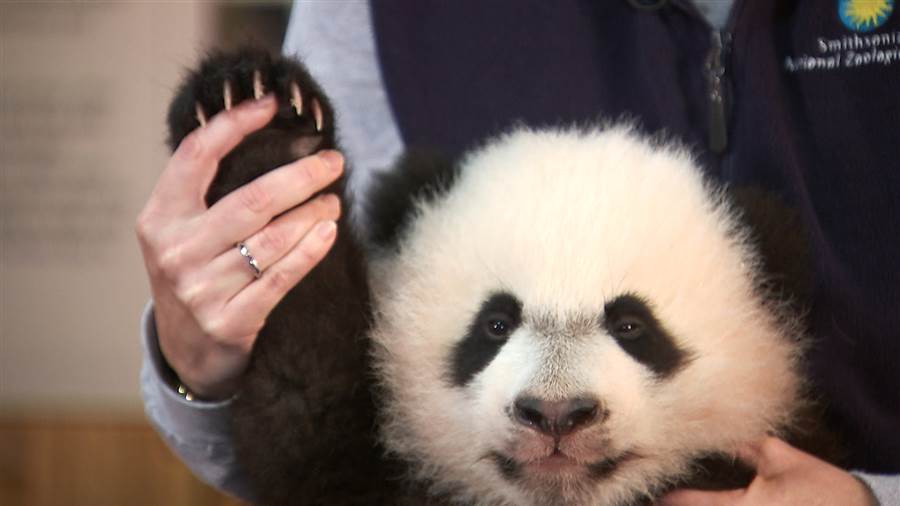Bei Bei, a giant panda cub, was confirmed to be well and healthy after undergoing surgery to remove a mass of unprocessed bamboo from his digestive tract.
The procedure took place early on Friday as veterinarian surgeons were able to remove a mass of bamboo the size of a lemon. He was seen on Thursday with little enthusiasm, vomiting a couple of times throughout the day.

Zoo staff reviewed his overall state of health, after which he was transported to the veterinarian healing center to undergo ultrasound screening. After the exam, it was confirmed that Bei Bei’s belly was blocked, a condition that could have been lethal for the panda cub.
A baby panda’s Black Friday
As he recovers, Bei Bei will eat sweet potatoes and pears, seeing that his digestive tract is still sensitive from the damages caused by the unprocessed bamboo. Bei Bei, still a cub who nurses from his mother named Mei Xiang, is under constant surveillance and the panda house is closed at the moment.
“I’m extremely proud and thankful for our team of keepers, veterinarians, animal care staff, volunteer medical experts and all staff who have helped facilitate the urgent response. Bei Bei’s prognosis is very good. The challenge will be for our team to monitor him safely and that requires his cooperation. We will keep everyone up to speed as he recovers,” stated Director Dennis Kelly.
As he recovers, Bei Bei will be kept away from his mother and the panda cams. The zoo is expected to update the cub’s situation as he regains a healthy lifestyle. Fans of Washington D.C.’s newest panda can follow his unofficial Twitter account @houseofcubs
Washington D.C.’s National Zoo celebrated with a plethora of lights on Friday night, celebrating that Bei Bei was healthy once more. It is the first day of Zoo Lights, which will be active from 5 to 9 p.m. every day until New Year’s Eve.
The lights set up at the National Zoo took weeks to be fully installed. The show is free for onlookers, and zoo donors cover its costs. Visitors compare the National Zoo’s light show to that of Disney’s in Orlando, Florida.
Giant pandas are considered vulnerable species in their conservation status. Even if it’s supposed to be carnivores, the diet of the giant panda is comprised almost entirely of bamboo. They are known to eat birds, rodents, and other types of grass. While in captivity, pandas are also fed with bananas, oranges, honey, and fish.
The giant panda relies on conservation to survive. In 2007 there were at least 239 pandas in captivity in mainland China and 27 living outside the country in zoos around the world. The giant panda is one of the icons of animal preservation, which is why Bei Bei’s recovery was celebrated, seeing that it is one of the few pandas that exist in the world to this day.
Source: National Zoo
